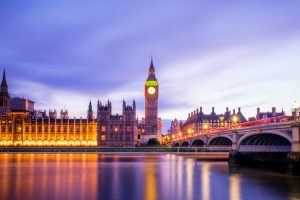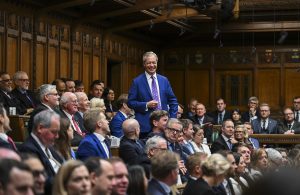In June, the UK Government’s ‘Solar Roadmap 2025’ outlined its plans to deliver 45-47GW of solar capacity by 2030.[1] Last week, the Telegraph reported that Reform UK launched a direct counter-campaign, ‘UK Opposes Renewable Eyesores’ (UKORE)[2]. In this article, Brevia Energy assesses the implications of this political tension and if it translates into real project risk, or whether rhetoric outpaces reality.
Expanding Solar Capacity – To Where?
The Roadmap projects that solar capacity will require 0.4% of UK land by 2030, compared to 0.1% today.[3] While modest in absolute terms, MPs have raised concerns regarding food security and biodiversity.[4] Nonetheless, the Roadmap takes a clear position: climate change is the larger threat to both these concerns, and solar is part of the solution. It also emphasises compatibility, requiring projects to demonstrate community and agricultural benefits alongside technical viability.[5]
Meanwhile, Reform has positioned solar as a lightning rod for local opposition to new green energy projects on the grounds of cultural intrusion. In parts of Lincolnshire and Cambridgeshire, MPs have echoed these concerns, arguing that projects are reshaping local character. Lincolnshire County Council described the Government’s approval of two new solar farms in the area as ‘a slap in the face’. The Council highlighted the strong local opposition to the cumulative impact of these developments.[6] The Government continues to face a balancing act between securing national future energy needs and efficiently utilising land for this purpose. For developers, land use is not just a planning issue but a political one. This makes collaboration with MPs, landowners, and local communities critical to avoid projects being derailed at the consent stage.
The ‘Rooftop Revolution’
The Roadmap favours rooftop deployment wherever feasible.[7] Great British Energy’s first project, announced in March this year, will install solar panels on 200 schools and 200 hospitals.[8] Energy Secretary Ed Miliband has also expressed interest in expanding this to civic spaces such as sports clubs. This frames the ‘rooftop revolution’ around visible community benefit.[9] Notably, two Reform Mayors, Luke Campbell and Andrea Jenkins (previously a Conservative MP), utilised the Government’s rooftop solar grant. This was despite the party’s position on removing all renewable subsidies, suggesting that local advantages may outweigh party rhetoric.[10]
The Government has also signalled support for more innovative deployment. For instance, its recent call for evidence solar canopies over large car parks concluded in June.[11] For investors, staying attuned to these signals and aligning with the Roadmap’s themes will be key to securing backing and de-risking projects.
Tackling Barriers
The Roadmap also addresses structural barriers to delivery, including grid access, which remains a major constraint. Inconsistent standards across Distribution Network Operators have led to delays and confusion. This has prompted Ofgem’s end-to-end review of the connections process. Alongside this, the Government is pursuing reforms to streamline access for small-scale and decentralised generation. These technical changes sit within a broader ambition: to modernise the UK’s energy infrastructure, supporting clean energy at scale. Linking solar deployment with system-wide reform positions the Government’s Clean Power agenda as a practical, future-facing strategy; not an ideological battleground. Whether this approach can overcome both operational and political hurdles, however, remains to be seen.
Conclusion
The Solar Roadmap sets out not just ambition, but an implementation agenda. While optimistic, its success hinges on managing delivery risks, from land use conflicts and community opposition, to public uptake and grid infrastructure limitations. For businesses across the energy value chain, the roadmap is less about whether the UK will pursue solar and more about how, and how quickly. Those able to anticipate local opposition and adapt messaging accordingly, align with regulatory shifts, and position themselves within the ‘revolution’ will be best placed to benefit from the Government’s drive to make solar a cornerstone of its energy and industrial strategy.
Brevia Energy is a dedicated division of Brevia Consulting, and has a longstanding reputation for its expertise and experience in the Energy Sector.
To organise a discussion with Brevia Energy on how we can help you and your organisation, please get in touch via the link here. You can also contact the Brevia Energy Team on 020 7091 1650 or email contact@brevia.co.uk
[1] UK Government, Solar Roadmap, 30 June 2025, Link.
[2] The Telegraph, Tice declares energy war on ‘eco-zealot’ Miliband, 30 July 2025, Link.
[3] UK Government, Solar Roadmap, 30 June 2025, Link.
[4] UK Parliament, Hansard, Oral Answers to Questions, 10 June 2025, Link.
[5] UK Government, Solar Roadmap, 30 June 2025, Link.
[6] Lincolnshire County Council, Two more huge solar farms ‘a slap in the face’ for Lincolnshire, 24 January 2025, Link.
[7] UK Government, Solar Roadmap, 30 June 2025, Link.
[8] Great British Energy, Great British Energy to cut bills for hospitals and schools, 21 March 2025, Link.
[9] Energy Security and Net Zero Committee, Work of the Department for Energy Security and Net Zero, Oral Evidence, 21 July 2025, Link.
[10] Energy Security and Net Zero Committee, Work of the Department for Energy Security and Net Zero, Oral Evidence, 21 July 2025, Link.
[11] UK Government, Solar on car parks and electric vehicle charging, 7 May 2025, Link.



